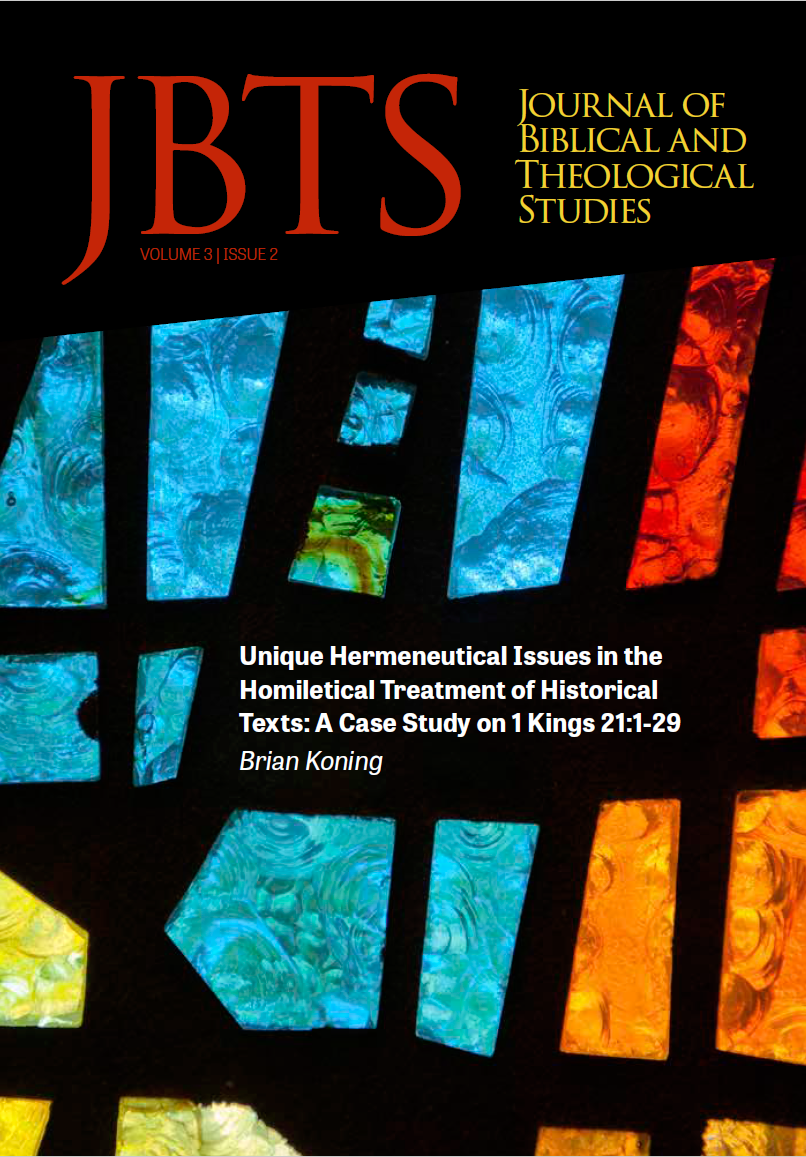Unique Hermeneutical Issues in the Homiletical Treatment of Historical Texts:
A Case Study on 1 Kings 21:1-29
Brian Koning
Brian M. Koning (PhD Student, Midwestern Baptist Theological Seminary) is an Adjunct Professor of Theology at Grand Canyon University
Abstract: Any preaching of the Old Testament necessarily must face historical narrative passages. Properly handling these passages though presents certain unique difficulties, and often the texts are handled with substandard care. Traditional Aristotelian three-point sermons seem arbitrary or forced upon the text and do not capture the heart of the message. There is tension in handling historical narratives between moralizing the story to bring it from “then” to “now”, and treating it as a merely historical item of note. This article seeks to study the elements and methods of hermeneutics unique to historical texts with an eye towards proper preparation for homiletical use. What follows seeks to be a distillation of methodology on hermeneutics in general, towards a direct application to historical texts. It will be argued that to rightly handle the text, expositors must appreciate the text as both historical and redemptive in nature. Exegeting from that starting point will lead the expositor to work along the textual, epochal, and canonical horizons of the text. By carefully attending to the three horizons of a given biblical text, an expositor should be able to more fully capture and apply the teachings of God from historical passages to their modern church audience.
Key Words: 1 Kings 21, preaching, narrative, history, hermeneutics, typology, exegesis




